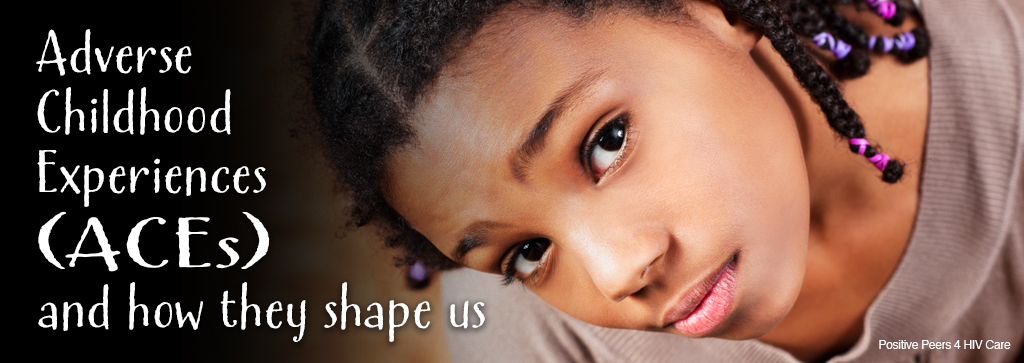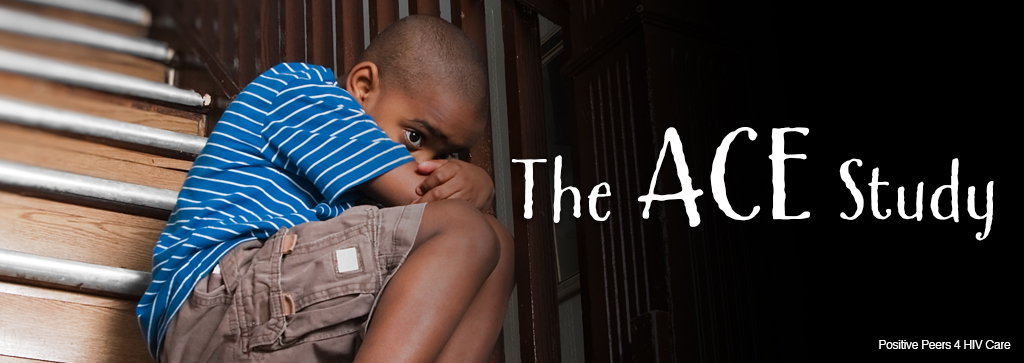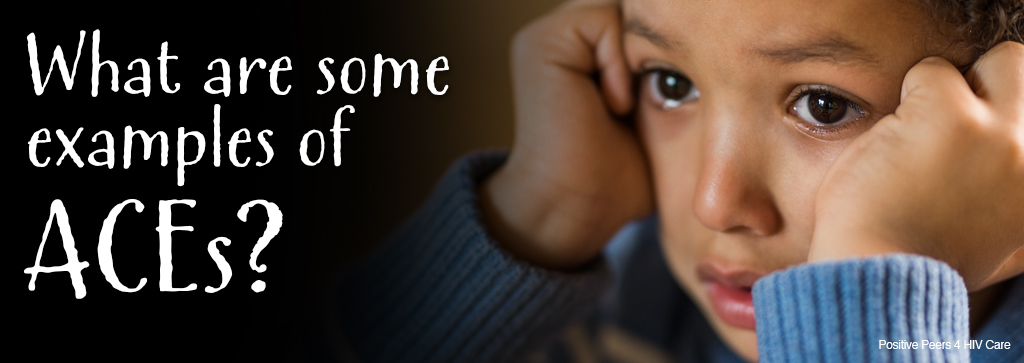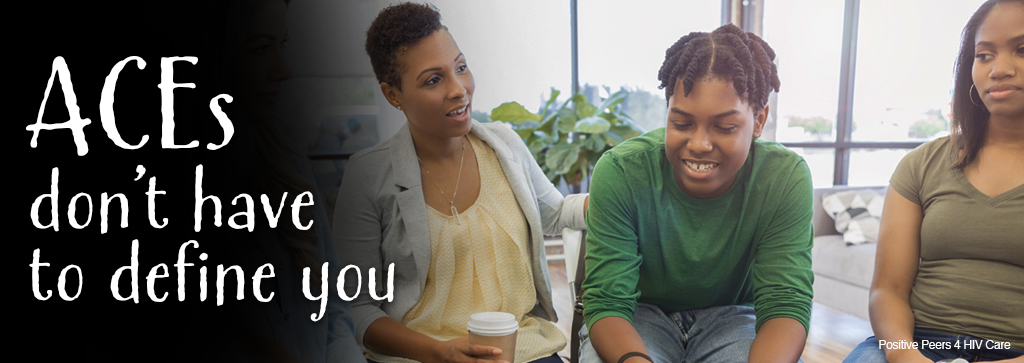
By: Jennifer McMillen Smith, LISW-S, HIV Social Worker at MetroHealth Medical Center and medically reviewed by Ann K. Avery, MD, Infectious Disease Physician at MetroHealth Medical Center
About two-thirds of all people will experience an adverse childhood experience (ACE) according to the National Child Traumatic Stress Network, but what does this mean?
Adverse childhood experience is any trauma, abuse, or neglect someone under 18 years-old experiences. People that have had at least four ACEs have an increased chance of developing a substance abuse problem. They also are more likely to have depression and potentially commit suicide. These aren’t guarantees, but it’s important to understand that adverse childhood experiences can have a lasting impact on your wellbeing and life.

The ACE Study
A lot of research has been done on Adverse Childhood Experiences, and people have found the more you experience, the greater your risk for negative long term effects.
The CDC-Kaiser Adverse Childhood Experiences Study or the ACE Study was the first large study that looked at how childhood trauma impacts adults.
More than 17,000 people were interviewed in the study, answering questions about their current health and behavior and Adverse Childhood Experiences they went through. The ACE Study ended up being a groundbreaking look into childhood trauma and its lasting consequences. The study produced a ton of useful information. One thing to consider is that the Kaiser study participants were people who had Kaiser health insurance – so they tended to be middle class and white.
Here are the highlights:
- Childhood trauma is more common than people think.
- Thirty percent of people experience physical abuse, and 15 percent experience neglect.
- Adverse Childhood Trauma is common all groups of people, regardless of socioeconomic status, race, or where they live.

What are some examples of ACEs?
In the study, ACEs are divided up into three different categories: child abuse, child neglect, and household challenges.
Child abuse:
- Physical abuse includes a parent or stepparent slapping, pushing, hitting, grabbing, or throwing something at you.
- Emotional abuse is anything from being sworn at, put down and insulted, or threatened with something.
- Sexual abuse is an adult at least five years older than you who touches or fondles you sexually, makes you touch them sexually, or rapes you. This can include relatives, family friends, other adults you know, and strangers.
Child neglect:
- Physical neglect: This means parents aren’t providing basic necessities like food, shelter, and clothes, along with a safe environment and kicking a child out of the home.
- Emotional neglect is a failure to meet a child’s emotional needs, including withholding love and affection, being absent when a child needs their parent, and being overbearing.
Household challenges:
- Mental illness or suicide attempt in the home
- Parental separation or divorce
- Substance abuse in the home
- Domestic violence
- Incarcerated family member
- Economic hardship, including poverty
- Death of a parent or parental figure
- Victim of or witness to a crime
Come join our private, stigma-free, supportive community.
Health management tools with medication & appointment reminders.
Social networking in a community conversation & private chats.
ACEs in the long term
From mental health and physical health to income and education, ACEs have an impact on nearly everything in a person’s life.
Experiencing trauma as a child greatly increases risky behavior as an adult. But what all constitutes a risky behavior? Examples include having an earlier sexual debut (the first time someone has sex), which can sometimes mean unprotected sex resulting in an STI or HIV status. Other risky behavior includes drinking more alcohol or using other drugs.
People with 4 ACEs or more are more likely to have a chronic health condition than those who never experienced childhood trauma. Some of these chronic health conditions include emphysema, chronic bronchitis, stroke, diabetes, cancer, heart disease, and severe obesity.
Those who have gone through an adverse childhood experience have lower rates of academic achievement and are less likely to graduate. People with childhood trauma are much more likely to miss work. Altogether, this can mean less lifetime income, more poverty, less healthcare, and everything else that comes with having less money. Scary!

ACEs don’t have to define you
Don’t be freaked out if you feel you’ve suffered from a lot in your childhood. It’s helpful to know about ACEs so you can take care of yourself.
Stress is just a part of life and can even help kids prepare for adulthood. However, exposure to chronic or toxic stress can change a child’s brain. The good news is that even after going through something traumatic, we’re able to adapt. Many people who have experienced ACEs are very resilient (meaning they’re tough and can recover from difficult situations more quickly).
As adults, having a supportive, positive environment is key to helping us deal with childhood trauma. It helps us learn to provide a loving, safe, and supportive environment for our future children, so they never have to go through what we did. Having a rough childhood filled with trauma can have a big impact on someone’s entire life. Like with anything else, there are no guarantees. Trauma does not have to play a huge role in your life as an adult. Positive influences and experiences can make a huge difference. Talking to a therapist who’ll help you work through all the tough stuff and make you into the best person you can be.
Related Blogs:


